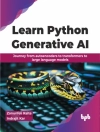The most common document formalisation for text classi?cation is the vector space model founded on the bag of words/phrases representation. The main advantage of the vector space model is that it can readily be employed by classi?cation – gorithms. However, the bag of words/phrases representation is suited to capturing only word/phrase frequency; structural and semantic information is ignored. It has been established that structural information plays an important role in classi?cation accuracy [14]. An alternative to the bag of words/phrases representation is a graph based rep- sentation, which intuitively possesses much more expressive power. However, this representation introduces an additional level of complexity in that the calculation of the similarity between two graphs is signi?cantly more computationally expensive than between two vectors (see for example [16]). Some work (see for example [12]) has been done on hybrid representations to capture both structural elements (- ing the graph model) and signi?cant features using the vector model. However the computational resources required to process this hybrid model are still extensive.
İçerik tablosu
Research and Development in Intelligent Systems XXVI.- Coping with Noisy Search Experiences.- KNOWLEDGE DISCOVERY AND DATA MINING.- Text Classification using Graph Mining-based Feature Extraction.- A Sliding Windows based Dual Support Framework for Discovering Emerging Trends from Temporal Data.- A Classification-based Review Recommender.- Ontology-Driven Hypothesis Generation to Explain Anomalous Patient Responses to Treatment.- REASONING.- Dual Rationality and Deliberative Agents.- Deriving Extensional Spatial Composition Tables.- A New Approach to Influence Diagrams Evaluation.- Analogical proportions: another logical view.- DATA MINING AND MACHINE LEARNING.- Evaluating Clustering Algorithms for Genetic Regulatory Network Structural Inference.- Parallel Rule Induction with Information Theoretic Pre-Pruning.- A kernel extension to handle missing data.- Template Learning using Wavelet Domain Statistical Models.- OPTIMISATION AND PLANNING.- Group Counseling Optimization: A Novel Approach.- Firefly Algorithm, L#x00E9;vy Flights and Global Optimization.- Improving Cooperative PSO using Fuzzy Logic.- Context-sensitive Plan Execution Language for Adaptive Robot Behaviour.- KNOWLEDGE ACQUISITION AND EVOLUTIONARY.- Explaining How to Play Real-Time Strategy Games.- On the Structure of a Best Possible Crossover Selection Strategy in Genetic Algorithms.- Chunking Natural Language Texts using Evolutionary Methods#x002A;.- SHORT PAPERS.- Multi-Agent Reinforcement Learning #x2013; An Exploration Using Q-Learning.- Leveraging Sub-class Partition Information in Binary Classification and Its Application.- A Linguistic Truth-Valued Temporal Reasoning Formalism and Its Implementation.- Extending arc-consistency algorithms for Non-Normalized CSPs.- Remainder Subset Awareness for Feature Subset Selection.- An e-Manufacturing environment for Open Manufacturing Systems.- Applications and Innovations in Intelligent Systems XVII.- Corpus Callosum MR Image Classification.- AI AND DESIGN.- Architectures by Design: The Iterative Development of an Integrated Intelligent Agent.- From Source Code to Runtime Behaviour: Software Metrics Help to Select the Computer Architecture..- Learning to Improve E-mail Classification with num#x00E9;ro interactive.- COMMERCIAL APPLICATIONS OF AI.- An AI-Based System for Pricing Diverse Products and Services.- An Interval Type-2 Fuzzy Multiple Echelon Supply Chain Model.- Allocating Railway Platforms Using A Genetic Algorithm.- FURTHER AI APPLICATIONS.- An Optimal Dynamic Threat Evaluation and Weapon Scheduling Technique.- On Assisting a Visual-Facial Affect Recognition System with Keyboard-Stroke Pattern Information.- Feature Selection for Wheat Yield Prediction.- SHORT PAPERS.- Method of Combining the Degrees of Similarity in Handwritten Signature Authentication Using Neural Networks.- Evolutionary Physical Model Design.- Decision Support in Designing with Polymers.- Cluster-Based Benchmarking of Universities as an Alternative to League Tables.












